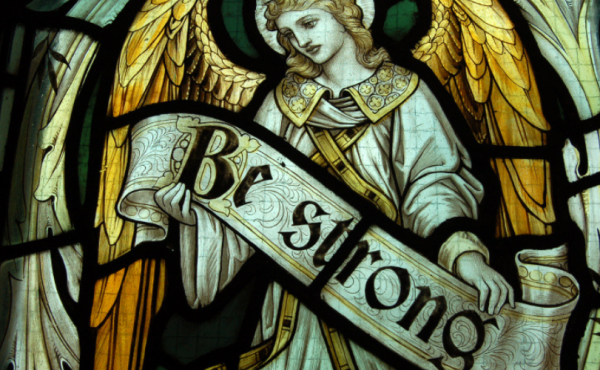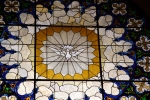June 29, 2023
Beauty for Ashes—My Navigation into Beloved Community

It was lunchtime on Wednesday, May 18, 2016, when I sat in cool red-brick nave of Trinity Episcopal Church in Baytown, Texas. It wasn’t my church, but I found myself desperately in need of a sanctuary—someplace quiet to grieve the United Methodist Church I loved and to pray for its leaders. At the time, I served on the board for Reconciling Ministries in the Texas Annual Conference of the United Methodist Church, and we were facing an uphill battle. Again. It was General Conference—the every-four-year meeting to set the governance of the global Church, and we were in trouble. Conservative factions had managed to pass bills that took the Church back 70+ years to a time before women’s rights. It wasn’t just about the gays this time; the Church was after women. Only a few months into the discernment process, I felt something inside me break that day. I still felt called to ministry, but I knew it could no longer be in the UMC. I remember saying that, even if the Church did want me, I no longer wanted it back.
And so there I sat, still in love with my Church and simultaneously aware that I could not remain; I just knew that I needed to pray. Accustomed to hymnals and bibles in the pews, I picked up the hard-backed red book in front of me with the gold cross, to discover a Book of Common Prayer. It smelled like libraries and incense, and the pages turned easily to its most-loved places. I didn’t know where to begin, so I let it fall open on my lap and read:
O God, our heavenly Father, who raised up your faithful servant N., to be a [bishop and] pastor in your Church and to feed your flock: Give abundantly to all pastors the gifts of your Holy Spirit, that they may minister in your household as true servants of Christ and stewards of your divine mysteries; through Jesus Christ our Lord, who lives and reigns with you and the Holy Spirit, one God, for ever and ever. Amen." (BCP 248)
That was the day, more than any other, that I became Episcopalian. I still hadn’t sent my letter to the bishop and my pastor to stop my process and to formally leave the Church, but I knew that day it was coming. Two weeks later, I found myself in the same pew, this time on a Sunday morning with my family in-tow. Two weeks after that, our priest and our deacon marched along-side us in the Houston Pride parade. There would be no more pervasive church-hurt and no more struggling to reconcile the love we had for a Church who did not love us well in return. Though we had once had to wed quietly in another state, now we could fully celebrate our marriage in our community of faith. We were joyfully at home in the Episcopal Church, and it was good.
One of the first things my spouse said to me when we joined Trinity was, “you know you can follow your calling here,” and that was true, I could. The problem was I didn’t know anymore what that calling was. I knew I was called to be Episcopalian, but I wasn’t sure about anything else. I thought just sitting and allowing myself to heal for a while was probably enough, and it was—for about a week. I missed being involved in worship as more than a consumer. I missed lectoring and playing the piano and singing. I missed leading bible study, serving on boards, and being active. Then, a month after we came to Trinity, I began having dreams.
I tell people now that the dreams were a plague. Every night I would wake in the middle of the night having dreamt I was serving Eucharist or serving someone in pastoral care, and then came the night that I dreamt of an ordination—of my ordination. And when I tell you God was in my room, I don’t mean the wildly comforting wind of the Holy Spirit—I mean that God in all of Their divine glory was present in my room—fearsome, glorious, and terrifying. I had never so felt the need to abase myself as I did in the wee hours of that morning, and there was certainly no going back to sleep. To this day, I can see the white stone of the nave and the red carpet; I can feel the stairs to the altar beneath my knees and see the pipe organ on the wall—I remember it all. That week I went to my priest and told her I needed to talk about discernment.
Fast forward through seven years of life and growth and Covid and death, and my family currently finds itself packing our home to move to Austin for seminary in the fall. My spouse, our 13-year-old son, and I will be there full-time, with our 14-year-old daughter joining us on the weekends. With the support of our congregation, St. Luke the Evangelist in Houston’s third ward, I lead the only Deaf/Hard of Hearing missional community in our diocese and find my calling in serving D/HOH populations. And where I find myself fully willing to serve all the bishops of the Church, I know a handful of them would not welcome my service, and I thank God for the leadership in my own diocese who fully celebrate my call, not despite who I am, but because of who God created me to be. Through embracing the fullness of both my disabilities and my queerness, they have helped me to find a God who is big enough to be both Deaf and hearing, neurodivergent and neurotypical, queer, lesbian, bisexual, gay, and straight, and all expressions of gender. I find a God who frees me to be my authentic self and who celebrates that person as beloved and holy. And I remember the words of a United Methodist elder who once told me that I loved people well, and that it was hard for people to hate me in the face of that love. And I pray for God to help me see others as God sees them so that I may love them as God loves them. I confess, I do not always love well in the face of harm, but I continue to pray for that love to so fill me that it may change my heart and the hearts and minds of those who still struggle with my identity in Christ and my audacity to claim the Church as my own.





